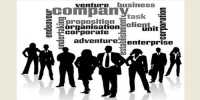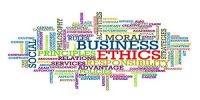A Model for Legitimate areas of Organizational Influence – Discussion
Every organization develops certain policies and requirements for performance. If the organization and an individual define the boundaries of legitimate influence differently, then organizational conflict is likely to develop. This conflict can be sufficient to interfere with the accomplishment of an organizational purpose.
Attitudes toward the legitimacy of influencing various lands of behavior in an organizational context are examined. There is a greater than average drop in the legitimacy of items relating to individual lifestyles (e.g., appearances, sexual conduct) and an increase in the legitimacy of organizational involvement in interpersonal conduct, and potentially dangerous personal behavior (e.g., smoking and drinking). An attitude survey revealed that samples from business managers, local union leaders, and college students were highly consistent as their ranking of behavior areas; the more jobs related the area, the more it was considered legitimate to influence. In contrast, the samples differed significantly in the number of areas considered to be legitimate to influence, and in their responses to given behavior areas, for example- “attitude toward unions”.
















